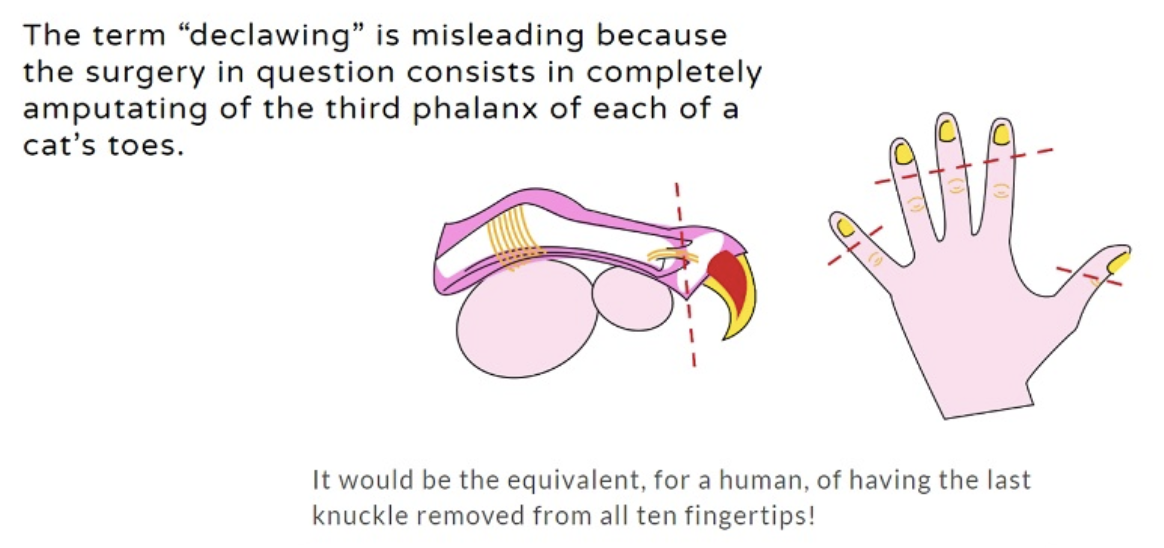- Nicholas Chan
- Communications Director, Office of Assemblymember Alex Lee
- (916) 319-2392
- nicholas.chan@asm.ca.gov
The Governor has signed Assemblymember Alex Lee’s legislation, AB 867, to ban cat declawing in California, marking a landmark and momentous achievement for animal welfare.
“AB 867 marks a historic milestone for animal welfare by banning cat declawing,” said Assemblymember Lee. “This important legislation shows our commitment to protecting our cat companions. After years of pushing to make this a reality, I’m proud to see California create a more compassionate society for our feline friends by moving away from this inhumane practice.”
Nationally, veterinarians overwhelmingly oppose cat declawing, with the majority supporting a prohibition on cat declawing when it is not medically necessary. California now joins a growing number of cities and states to outlaw this practice. In 2003, the city of West Hollywood passed the nation’s first legislation to ban cat declawing, with seven other California cities following suit. New York then became the first state in the U.S. to enact the ban on this inhumane practice in 2019. Maryland, Washington, D.C., and Massachusetts have also passed bans. Globally, dozens of countries including Australia, New Zealand, the U.K. and Switzerland have all banned cat declawing.
Declawing involves amputating cats’ toe bones or severing the tendon controlling their paws, a surgical procedure that can lead to debilitating health effects. Surgical complications include hemorrhage, infection, pain, and anesthetic complications. Removing cats’ claws also increases the likelihood of behaviors like biting, aggression, and litter box avoidance. Overgrooming, chronic back pain, residual bone fragments and mobility issues are among other long-term effects of declawing.
(Photo courtesy of the Montreal SPCA)
AB 867 prohibits the declawing of a cat unless a veterinarian performs the procedure for a medically necessary purpose that benefits the cat’s health. Scratching is a natural cat behavior, and non-surgical alternatives such as nail trimming, soft claw caps, and behavioral training are available to address unwanted behaviors. While some believe that cat declawing reduces health risks for immunocompromised cat owners, experts instead emphasize the importance of proper hygiene and parasite control.
The sponsors of AB 867 are The Paw Project, Animal Legal Defense Fund, Humane World for Animals, and Humane Veterinary Medical Alliance.
“The Paw Project is thankful that California lawmakers have chosen to prohibit elective declawing, a procedure that has been proven to harm cats and that provides no benefits to humans,” said Dr. Jennifer Conrad, Founder and Director of The Paw Project. “The Paw Project has been working to end declawing for over 25 years through education and legislation, and we have been proud to sponsor this important animal protection legislation. We are particularly grateful to Assemblymember Alex Lee for authoring this bill and to the many national and local organizations who have worked together so hard to make this effort a reality.”
“Declawing isn’t a manicure – it’s an amputation that needlessly harms cats to spare sofas,” said Jennifer Hauge, Senior Legislative Affairs Manager at Animal Legal Defense Fund. “We are so excited that California now joins a growing number of states and other jurisdictions in affirming that the only time a cat should ever purposely lose part of a toe is when a veterinarian determines it’s medically necessary for the animal’s health, not human convenience.”
"Signing AB 867 into law is a win for cats, ethics, science and every advocate who dug in their claws," said Danielle Bays, Senior Program Manager of Cat Protection and Policy at Humane World for Animals. "California's declaw ban is more than a good law—it's a moral milestone, ending a practice that never belonged in a humane world.”
“The Humane Veterinary Medical Alliance (HumaneVMA) celebrates the long-awaited passage of AB 867, a bill ending medically unnecessary feline declawing surgeries in The Golden State,” said Dr. Barbara Hodges, Program Director of Advocacy and Outreach at HumaneVMA. “HumaneVMA thanks Assemblymember Alex Lee for his unrelenting advocacy, and Governor Gavin Newsom for his humane leadership in signing the legislation into law, further protecting the health and welfare of companion cats in California. We hope this achievement serves as an inspiring model for similar state bills across the country.”

